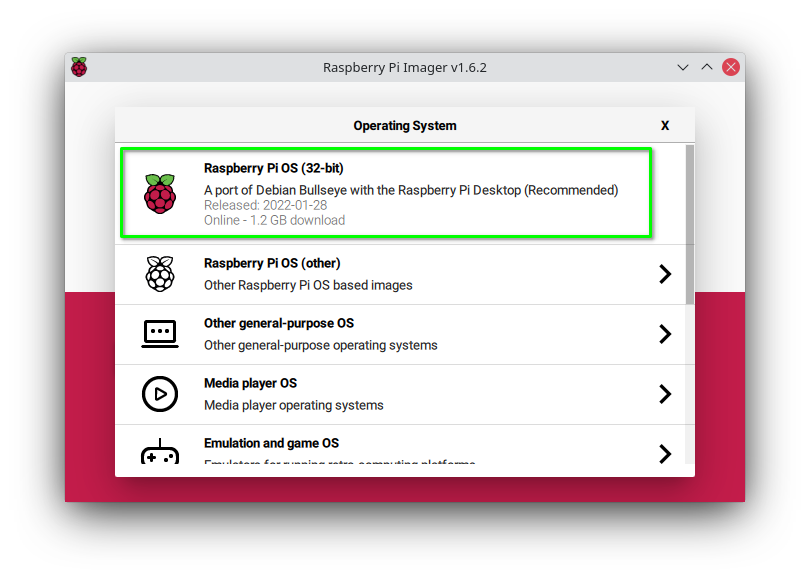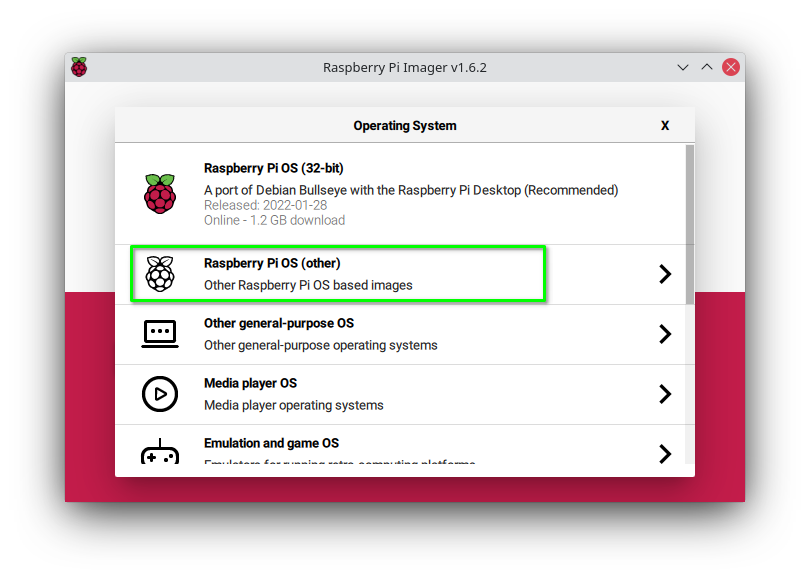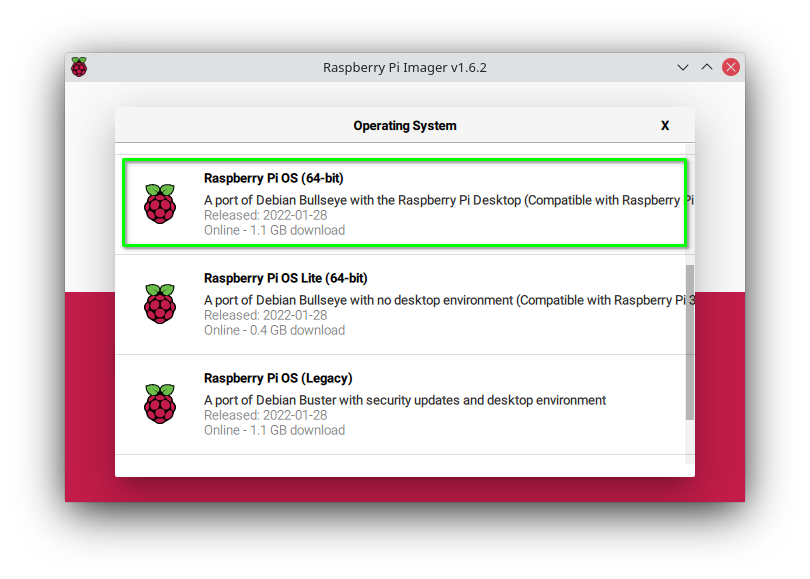Raspberry Pi OS 64-bit Exits Lengthy Beta
It's now an official, release OS.
February 2, 2022 marks the day that 64-bit flavor of Raspberry Pi OS moves from a rather lengthy beta, into the world at large. The news, announced via a blog post by Gordon Holingworth, Chief Product Officer at Raspberry Pi Ltd sees the 64-bit OS move to being released. But this new release isn't set to replace the 32-bit version just yet.
Originally released as a beta back in May 2020, Raspberry Pi OS 64-bit looks and feels the same as the venerable 32-bit version but under the hood we get a little more horsepower for the newer models of Raspberry Pi.
From the Raspberry Pi 3 onward (and a model of Raspberry Pi 2 based on an under-clocked Pi 3 SoC) the various models of Raspberry Pi have been 64-bit compatible. To retain compatibility across all models, Raspberry Pi stuck to a 32-bit OS, but as the balance of older versus newer Raspberry Pi shifts to favor the new models a new 64-bit OS is called for.
| Model | Processor | Arm Core | Debian / Raspbian ARM Port (Maximum) | Architecture Width |
|---|---|---|---|---|
| Raspberry Pi 1 | BCM2835 | ARM1176 | arm6hf | 32 bit |
| Raspberry Pi 2 | BCM2836 | Cortex-A7 | arm6hf | 32 bit |
| Raspberry Pi Zero | BCM2835 | ARM1176 | arm6hf | 32 bit |
| Raspberry Pi Zero 2 | BCM2710 | Cortex-A53 | arm64 | 64 bit |
| Raspberry Pi 3 | BCM2710 | Cortex-A53 | arm64 | 64 bit |
| Raspberry Pi 4 / 400 | BCM2711 | Cortex-A72 | arm64 | 64 bit |
For now, the 32-bit image is still the default and recommended image promoted by the Raspberry Pi Imager tool. This move ensures that new users can get up and running no matter what model of Pi they may have. If you really want to take the 64-bit image for a test drive, it can be found under Raspberry Pi OS (other) via the Choose OS option.



We asked Hollingworth to explain the current status of Raspberry Pi OS 64-bit and in his email Hollingworth explains that the 64-bit release has "had less test time than the 32-bit build and therefore might have issues we've not found yet. But otherwise it has equal functionality where it is under our control to provide it." This means that for the majority of users, the move will be friction-less. But of course there will be a few teething issues, most likely from specific edge cases. If you find an issue, report it!
This is not an issue, per se, but there is one workaround that we need to employ. At this time, there is no 64-bit support for Widevine DRM. This means that we cannot play media from sites such as Disney+ and Netflix. The current workaround, detailed in the blog post, requires us to install the 32-bit Chromium browser.
Hollingworth clarifies that that performance across the two architectures is not an issue, saying that "there's basically no disadvantage to doing that (people seem to think the 64-bit version is faster to load pages, but in my extensive testing it seems it's not as easy to prove this is the case, benchmarks run faster, but often that doesn't translate to actual page loading/interaction improvements)"
Get Tom's Hardware's best news and in-depth reviews, straight to your inbox.
The Raspberry Pi 4, and the Compute Module 4 introduced a quandry that hadn't existed in the Pi ecosystem before. There are models which have more than 4GB of RAM and, typically, a 32-bit OS cannot access more than 4GB. However, for those boards, the 32-bit Raspberry Pi OS still does work around the limit to an extent.
"On Raspberry Pi 4, we use the ARM Large Physical Address Extension (LPAE) to access up to 8GB of memory, subject to the constraint that any process is limited to accessing 3GB (we reserve the top 1GB of the virtual address space for the kernel)," Hollingworth explains.
We asked Hollingworth if the 32-bit OS will be phased out as more 64-bit compatible models are released? "While we manufacture hardware with 32-bit processors then we will still continue with the 32-bit recommended image. (We still make original Pi model B's because we always said we would continue to do so while it was possible)," he said.
For now, 32-bit and 64-bit will run in parallel, affording users of Pis both new and old the opportunity to squeeze the most from the popular single board computer. But how long until we see the 64-bit OS become the dominant choice?

Les Pounder is an associate editor at Tom's Hardware. He is a creative technologist and for seven years has created projects to educate and inspire minds both young and old. He has worked with the Raspberry Pi Foundation to write and deliver their teacher training program "Picademy".